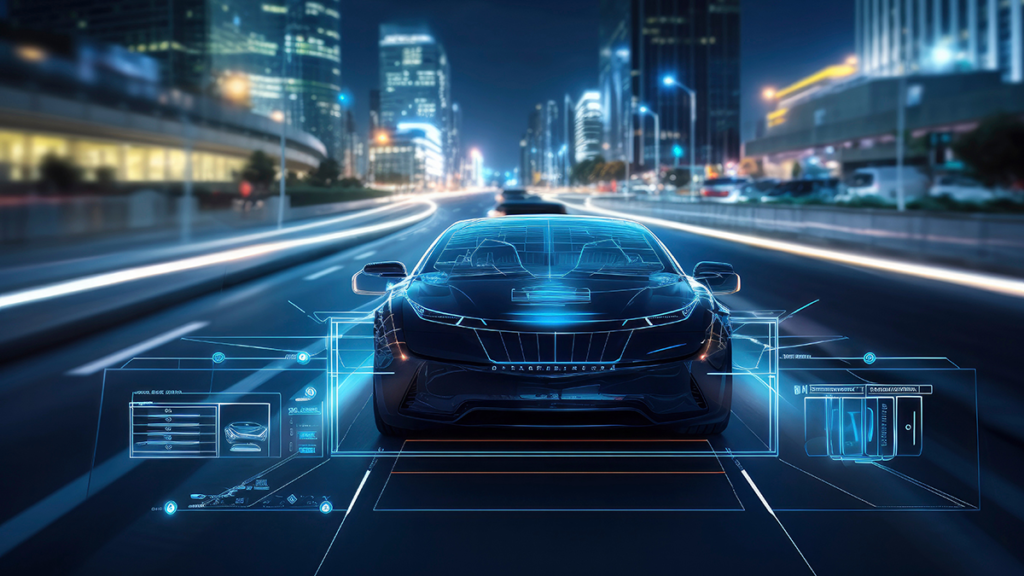
The integration of smart sensors in modern vehicles represents a pivotal advancement in automotive technology, revolutionizing everything from safety and efficiency to user experience and environmental impact. Smart sensors, equipped with sophisticated capabilities such as connectivity, real-time data processing, and AI algorithms, enable vehicles to gather, interpret, and respond to vast amounts of information from their surroundings and internal systems. This transformative technology is reshaping the automotive industry in profound ways.

Enhancing Safety and Driver Assistance
One of the most significant benefits of smart sensors in vehicles is their role in enhancing safety. Sensors such as radar, lidar (light detection and ranging), cameras, and ultrasonic detectors enable advanced driver assistance systems (ADAS). These systems can detect obstacles, pedestrians, and other vehicles in real-time, providing warnings to drivers or even autonomously initiating braking or steering interventions to prevent collisions.
Furthermore, sensors contribute to adaptive cruise control, lane-keeping assistance, and automatic parking systems, enhancing both convenience and safety on the road. The integration of these sensors lays the foundation for semi-autonomous and eventually fully autonomous vehicles, promising a future where accidents due to human error become increasingly rare.
Improving Efficiency and Performance
Smart sensors play a crucial role in optimizing vehicle efficiency and performance. Sensors monitor engine performance, tire pressure, fuel consumption, and other critical parameters, providing real-time feedback to onboard systems. This data allows vehicles to adjust their operations dynamically, such as optimizing fuel injection timing for better fuel economy or adjusting suspension settings based on road conditions for improved comfort and handling.
Moreover, sensors contribute to predictive maintenance by continuously monitoring the health of various vehicle components. Early detection of potential issues allows for proactive servicing, reducing downtime and preventing costly repairs. This proactive approach not only enhances vehicle reliability but also prolongs the lifespan of critical components.
Enhancing User Experience
The integration of smart sensors enhances the overall driving experience by providing drivers with more information and control. Sensors can monitor driver behavior and preferences, adjusting cabin settings such as climate control, seat position, and infotainment options automatically to optimize comfort and convenience.
Furthermore, smart sensors enable connectivity features such as vehicle-to-vehicle (V2V) and vehicle-to-infrastructure (V2I) communication. This connectivity facilitates real-time traffic updates, route optimization, and even cooperative driving scenarios where vehicles coordinate to improve traffic flow and safety.
Environmental Impact and Sustainability

Smart sensors also contribute to reducing the environmental footprint of vehicles. By optimizing fuel efficiency and performance, sensors help decrease fuel consumption and emissions. Additionally, sensors can monitor air quality and emission levels, providing valuable data for environmental monitoring and compliance.
As electric vehicles (EVs) become more prevalent, sensors are instrumental in managing battery performance, charging efficiency, and energy consumption. Smart sensors enable precise monitoring of battery health and performance, optimizing charging cycles and extending battery life. This contributes to the widespread adoption of EVs as a sustainable transportation solution.
Challenges and Considerations
While the benefits of smart sensors in modern vehicles are substantial, several challenges need to be addressed. These include ensuring data security and privacy, standardizing communication protocols between different sensor types and vehicle platforms, and managing the complexity of integrating multiple sensor technologies seamlessly.
Moreover, as vehicles become more reliant on sensors and electronic systems, there is a growing need for robust cybersecurity measures to protect against potential cyber threats and unauthorized access.
Conclusion
In conclusion, the integration of smart sensors in modern vehicles represents a transformative leap forward in automotive technology. From enhancing safety and efficiency to improving user experience and sustainability, smart sensors are reshaping the way we drive and interact with vehicles. As technology continues to advance, the role of smart sensors will only become more critical in shaping the future of transportation towards safer, more efficient, and more sustainable mobility solutions.






